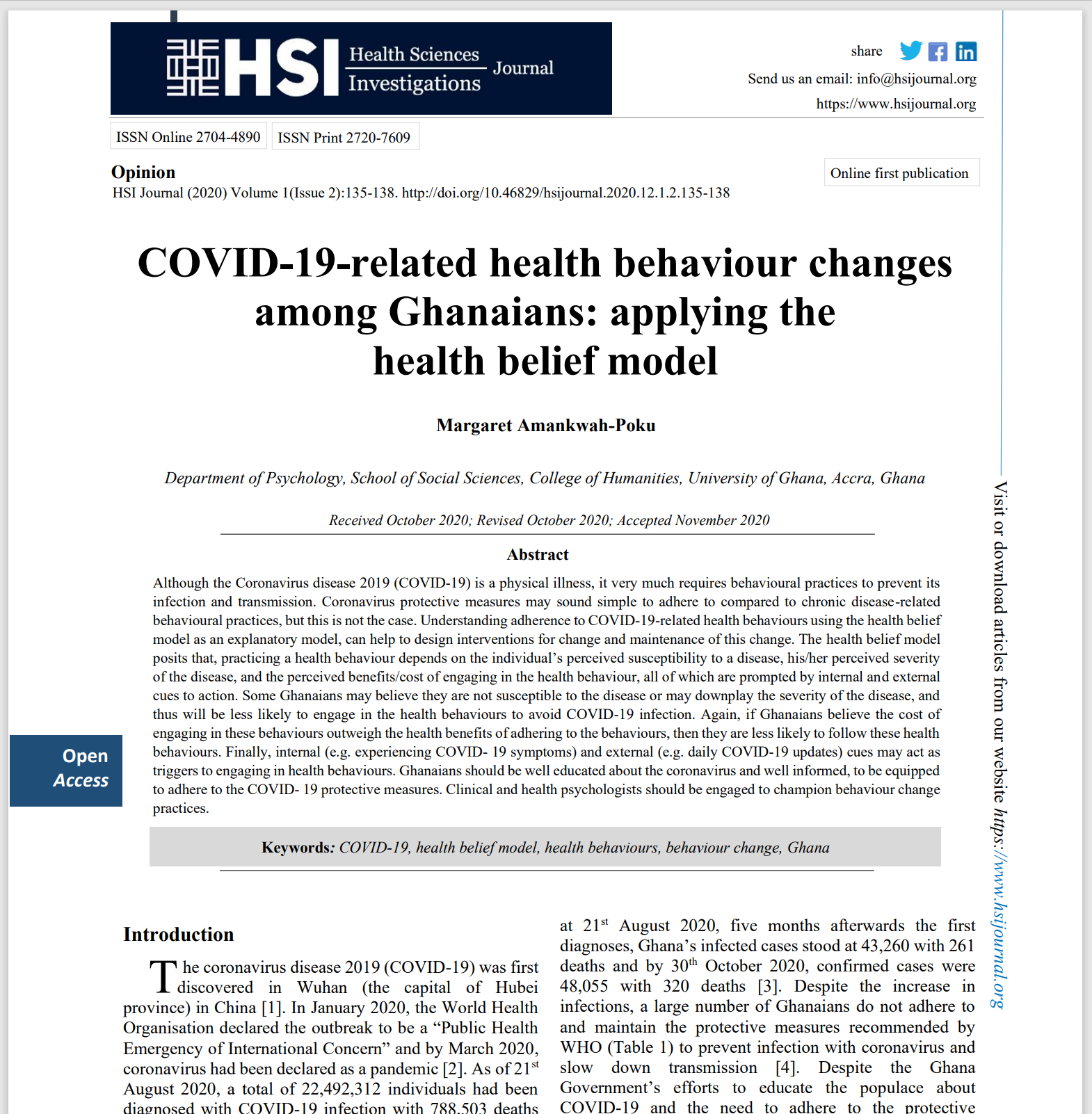COVID-19-related health behaviour changes among Ghanaians: applying the health belief model
COVID-19-related health behaviour changes among Ghanaians
Abstract
Although the coronavirus disease (COVID-19) is a physical illness, it very much requires behavioural practices to prevent its infection and transmission. Coronavirus protective measures may sound simple to adhere to compared to chronic disease-related behavioural practices, but this is not the case. Understanding adherence to COVID-19-related health behaviours using the health belief model as an explanatory model can help to design interventions for change and maintenance of this change. The health belief model posits that, practicing a health behaviour depends on the individual’s perceived susceptibility to a disease, his/her perceived severity of the disease, and the perceived benefits/cost of engaging in the health behaviour, all of which are prompted by internal and external cues to action. Some Ghanaians may believe they are not susceptible to the disease or may downplay the severity of the disease, and thus will be less likely to engage in the health behaviours to avoid COVID-19 infection. Again, if Ghanaians believe the cost of engaging in these behaviours outweigh the health benefits of adhering to the behaviours, then they are less likely to follow these health behaviours. Finally, internal (e.g. experiencing COVID- 19 symptoms) and external (e.g. daily COVID-19 updates) cues may act as triggers to engaging in health behaviours. Ghanaians should be well educated about the coronavirus and well informed, to be equipped to adhere to the COVID- 19 protective measures. Clinical and health psychologists should be engaged to champion behaviour change practices.


